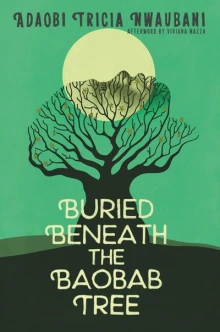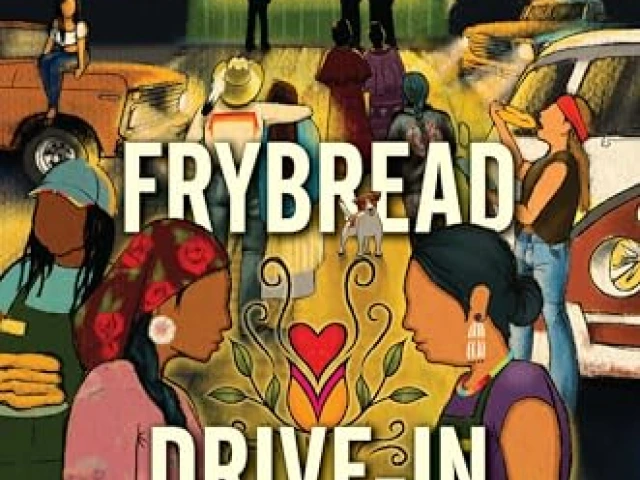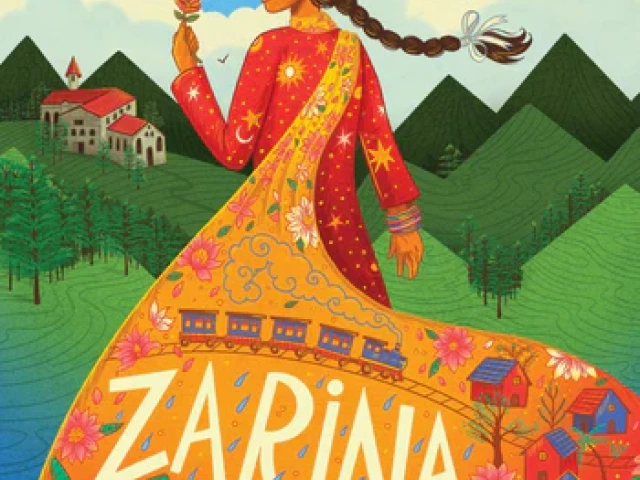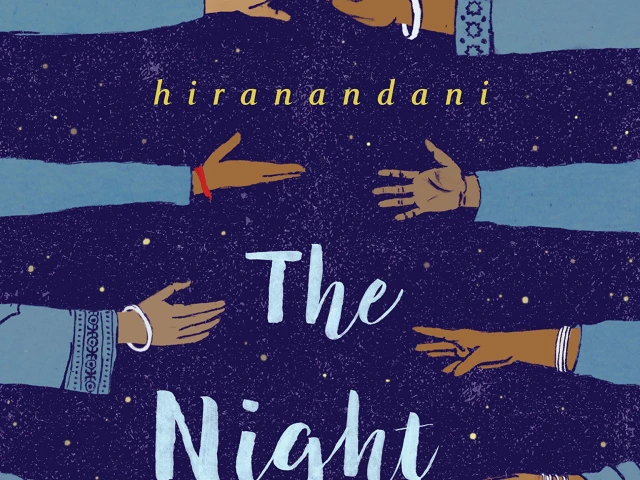Patriarchal Societies and Oppression of Women

For the next two blogs our discussion will focus on Buried Beneath the Baobab Tree, by Adaobi Tricia Nwaubani. This story is based on the experiences of girls captured by the extremist group, Boko Haram in Nigeria. Nwaubani (2018) writes, "since 2009, the terrorist group Boko Haram has been fighting an armed insurgency with the aim of creating an Islamic state in northern Nigeria. More than twenty thousand people have been killed and over two million displaced by the fighting" (p. 293). Boko Haram has wreaked havoc on Nigeria and its people, and the group received worldwide media coverage when they kidnapped 276 girls from a Chibok school. According to the BBC News, "Boko Haram was targeting because of their opposition to Western education, which the militants believe corrupts the values of Muslims." Nwaubani’s novel brings to light the struggles of the Nigerian people, especially its women, as a result of Boko Haram.
Buried Beneath the Baobab Tree is told by a narrator nicknamed Ya Ta by her family. Ya Ta is a girl with big hopes and dreams. Through her hard work and dedication at school, she hopes to earn a government scholarship to attend the university in Maiduguri and expand her future opportunities despite the news reports she overhears on her father’s radio- Papa listens to reports about Boko Haram from BBC Hausa. Hausa is the language that is spoken is Maiduguri, Borno.
According to the Council on Foreign Relations (2018), Nigeria is "roughly split between the Muslim-dominated north and Christian-dominated south. The two largest religious groups have, for decades, generally abided by an informal power-rotation agreement for the presidency, but political friction remains a significant factor in ongoing unrest”. Although Boko Haram is an Islamic group, Christians and Muslims are able to live peacefully together in the villages as evidenced by the events in the first chapters of the novel. Ya Ta and her family are Christians who live alongside their Muslim neighbors in harmony. Ya Ta’s friend, Aisha, is a young Muslim girl who assures Ya Ta that the men of Boko Haram do not represent the Islam that she herself practices. In the novel, Ya Ta says, "But Aisha told me that the Islam of Boko Haram is different from the one that she and Malam Isa practice" (Nwaubani, 2018, p. 52). Boko Haram has its own agenda that conflicts with both Christians and Muslims alike. Following our individual readings of this novel, we discussed our responses.
Lauren: While I found this book to be an interesting read, it is heart-wrenching at the same time. I cannot help but recognize how blessed and privileged I am to live in the United States of America where education is my right, despite being a woman. I have always had choices for my future; I was encouraged to pursue an education and to stand on my own feet in order to be able to provide for myself. Marriage was an option for me, but not a requirement. I wonder what it will take for all women to have the same choices that I have been allowed in my life. Perhaps one of the first steps is just recognizing oppression of women in its different forms. As a privileged woman, it is essential for me to open my eyes to the injustices other women face. Tyson (2011) explains that women suffer varying degrees of oppression due to patriarchy which is "difficult for most of us to recognize clearly and consistently because our everyday experience is so saturated with it" (p. 139).
Asiye: Although the novel’s plot is very sad for me, it was a page-turner. At some point, I had to scan because I felt very sad about all those things. The idea that this story happened somewhere in the world was enough to ruin my emotional integrity. As a Muslim woman, I was aware of all the problems and situations around the world, but I did not see this sort of vivid insider perspective before. The protagonist narrates the story like her diary, and the story flows easily.
Yenika-Agbaw (2016) stated that a "Third World Feminist lens focuses on the multi-dimensional nature of women’s situations" (p. 332). Hence, rather than focus on the obvious oppressions in the novel, I am going to focus on tacit ones. For instance, the protagonist and her father value education. She knows that she can only escape this poverty with education. Furthermore, she is capable of many things; she is a smart and hard-working student and that’s why she is granted a scholarship for a college education.
Another tacit oppressor point refers to my personal experiences. I have some relatives who were restricted by some determinants in their lives and were not able to go to school. It was either their fathers who thought that girls do not need school or extreme poverty that stole the opportunities. This novel reminded me of the woman who gets stuck among the restrictions and ended up an impossibility. The protagonist and the women I know (maybe they were not in the war) were tightened between determinants that she was not able to change or even struggle. Moreover, they have the capacity to do something good and make a difference in the world. I have personally observed that these circumstances make them very profoundly sad. Because they know that they can do it, but they are hindered, they feel like their lives are a waste of time. One of them was asking "I do not know why God created me? As a servant of this man (her husband)?" This is agony, and very overwhelming.
Withholding this psychology by my side, I looked at the protagonist’s situation again. Among the impossibilities that she cannot defeat, she needs to find out an escape plan. Hence, it is normal that she falls in love with Success because he is charming, educated and well-behaved. Her urge toward education increased with this 'being a possibility for him' idea. However, she is kidnapped and forced to marry the man she does not love. The situation which is being kidnapped and raped (it's not a marriage), is terrible already. With the idea that "I would manage," it becomes much more unbearable. The conveyed feeling from the author devastated me. I have to confess that I was not able to read some of the pages.
The other point I caught is that the danger of being around the people who do not care. From the "Gathered Around the Well" to "The Voice on Papa’s Radio," included these pieces, all chapters are ended that "They are talking about Boko Haram." Everybody was talking about this terrorist group, but no one is doing anything. They know that the danger was so close to the village, but they did nothing. Thus, they have to face disaster eventually.
Priscila: One of the aspects that bothered me while reading the text is the danger of feeding the growing Islamophobia in America. As a Christian, I have no problem in joining the protagonist when she says, "Boko Haram has nothing to do with Islam" (p. 156-157). That is the message that should be clear in the discussion of this story. A biased teacher with little knowledge of the Islamic pillars or Quranic texts may use this novel and the historical elements in it as an argument for criticizing religious diversity and for supporting discrimination. However, the chapter "Naming" (p.65-66) shows how Christians and Muslims live in harmony in their village, and how both religious groups are oppressed by the extremist Boko Haram. That brief chapter is one of the best depictions of diversity and inclusion in this novel. In that scene, the Muslim leader, Malam Zwindila, and the Christian leader, Pastor Moses, are side-by-side celebrating the blessing of a newborn baby. Even though they value different religious practices, the story shows respect between the two leaders and among the people. It takes wisdom and maturity for people to reach that level of understanding, but it truly exists around the world. I have heard about it from missionary friends who live in Mozambique and in Zambia, and I have seen it in my classrooms. With that in mind, I would suggest using this novel among teachers for a professional development session, to educate those who have not had the opportunity to study elements of the Islamic culture.
In closing: We were all profoundly affected by reading this novel given that it is based on actual events. According to a report by the Congressional Research Service (2019), Nigeria is the largest producer of oil, and it is also the second largest trading partner to the United States. This fact speaks to America’s capitalist ideologies. America sent aid to Nigeria through such organizations as UNICEF and the American Red Cross, but one can only wonder about the true motive behind the action. Tyson states, "The commodification of human beings is such an accepted part of big business in the United States that the price-tag placed on human life is frequently the chief motive" (2011, p. 115).
As readers, it is vital that we read and think critically about the texts we read to examine the positions writers give the female characters. Understanding this positionality will enable us as readers to recognize any oppression and advocate for women’s rights. Books such as this one are necessary to promote the call for social justice in our society. In next week’s blog, we will discuss the implications for us as educators for this novel.
References Nigeria Chibok abductions: what we know. (2017, May 8.). Retrieved from https://www.bbc.com/news/world-africa-32299943.
Congressional Research Service. (2019). Retrieved from https://fas.org/sgp/crs/row/RL33964.pdf.
Council on Foreign Relations. (2018). Retrieved from https://www.cfr.org/backgrounder/nigerias-battle-boko-haram.
Nwaubani, A. T. (2018). Buried Beneath the Baobab Tree. New York, NY: Katherine Tegen Books.
Tyson, L. (2011). Using Critical Theory: How to Read and Write about Literature. New York, NY: Routledge.
Yenika-Agbaw, V. (2016). Re-imagining an alternative life after the Darfur war: writing as emancipatory practice. In Critical Content Analysis of Children's and Young Adult Literature: Reframing Perspective. Taylor and Francis Inc.
Journey through Worlds of Words during our open reading hours: Monday-Friday, 9 a.m. to 5 p.m. and Saturday, 9 a.m. to 1 p.m. To view our complete listings of WOW Currents, please visit our site index.




Can I get a scholarship in your University?
Hi Akanbi! Your question can best be answered by the UArizona Office of Financial Aid: https://financialaid.arizona.edu/
Good luck!